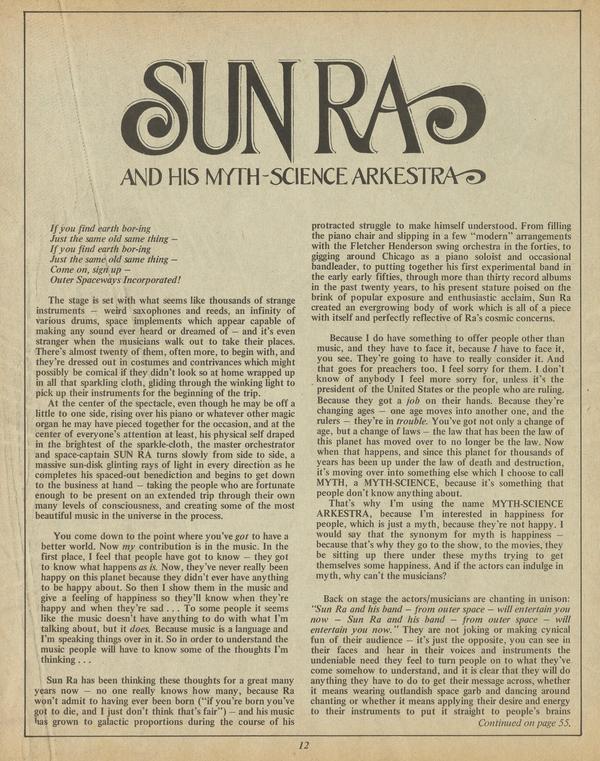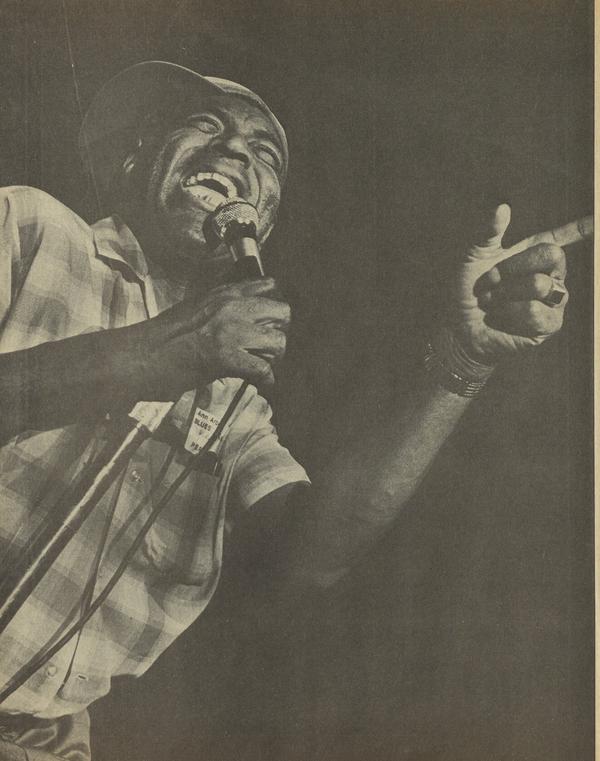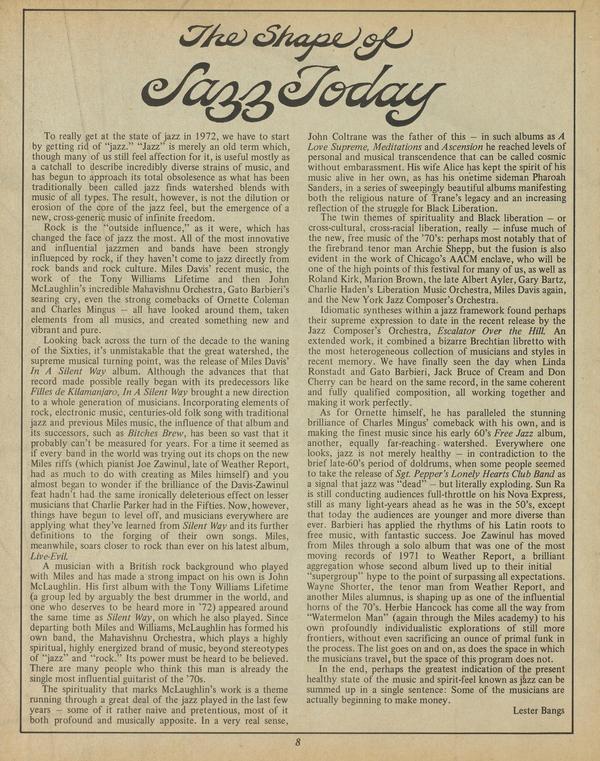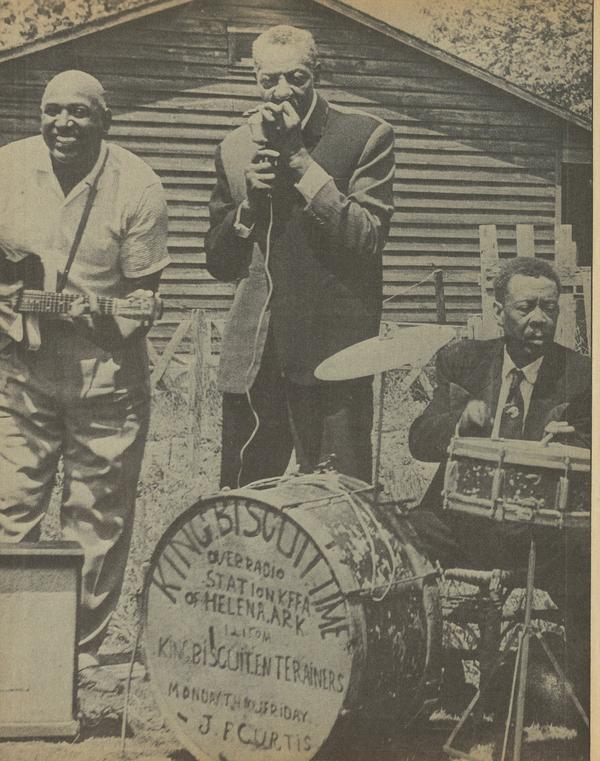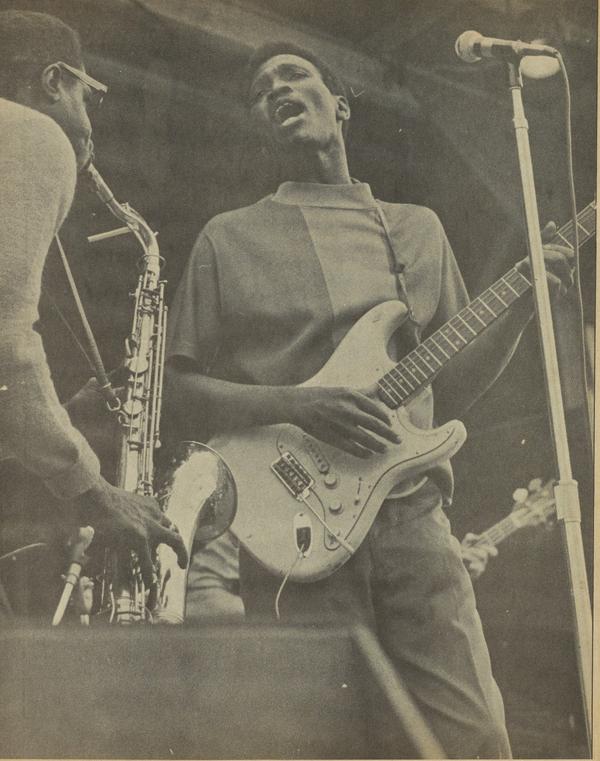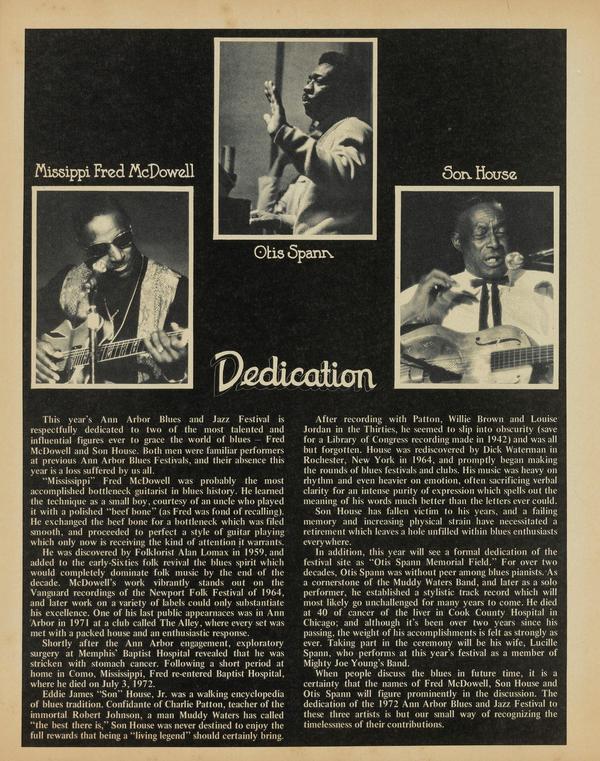OTIS RUSH
The story of Otis Rush has been one of promise and frustration, both for Otis and his fans.


The story of Otis Rush has been one of promise and frustration, both for Otis and his fans. Sixteen years ago the promise was evident to Cobra Records’ A&R man Willie Dixon when he heard 22-year-old Otis at the 708 Club on Chicago’s 47th Street. Dixon rehearsed Otis with his band, gave him a few songs, and recorded the outstanding young singer-guitarist on Eli Toscano’s struggling new label. Otis’ first release, “I Can’t Quit You Baby,” was a killer. Telephone callers jammed the WOPA switchboard when DJ Big Bill Hill (who, incidentally, emceed the 1969 Ann Arbor Blues Festival) aired the record, and the astonished Hill informed Dixon that Cobra Records had a new blues star in Otis Rush. Things continued to look promising for Otis throughout his stay with Cobra — he toured the country, made a name for himself, and produced some of the most beautiful blues records of the postwar period. “My Love Will Never Die,” “All Your Love,” “Double Trouble” and “Keep On Loving Me Baby” still rank as blues classics. Even with the demise of Cobra around 1960, Otis still had much to look forward to. He signed with Chess, the top blues label in Chicago.
But, looking back, Otis sighs, “That was a bad day.” Chess only issued two 45s by Otis, and he moved on to Duke Records — “That was another sad day.” The Houston-based label, perhaps sensing some competition for its own established blues roster, signed Otis and then effectively put him out of circulation. Otis’ five year contract with Duke yielded only one single.


